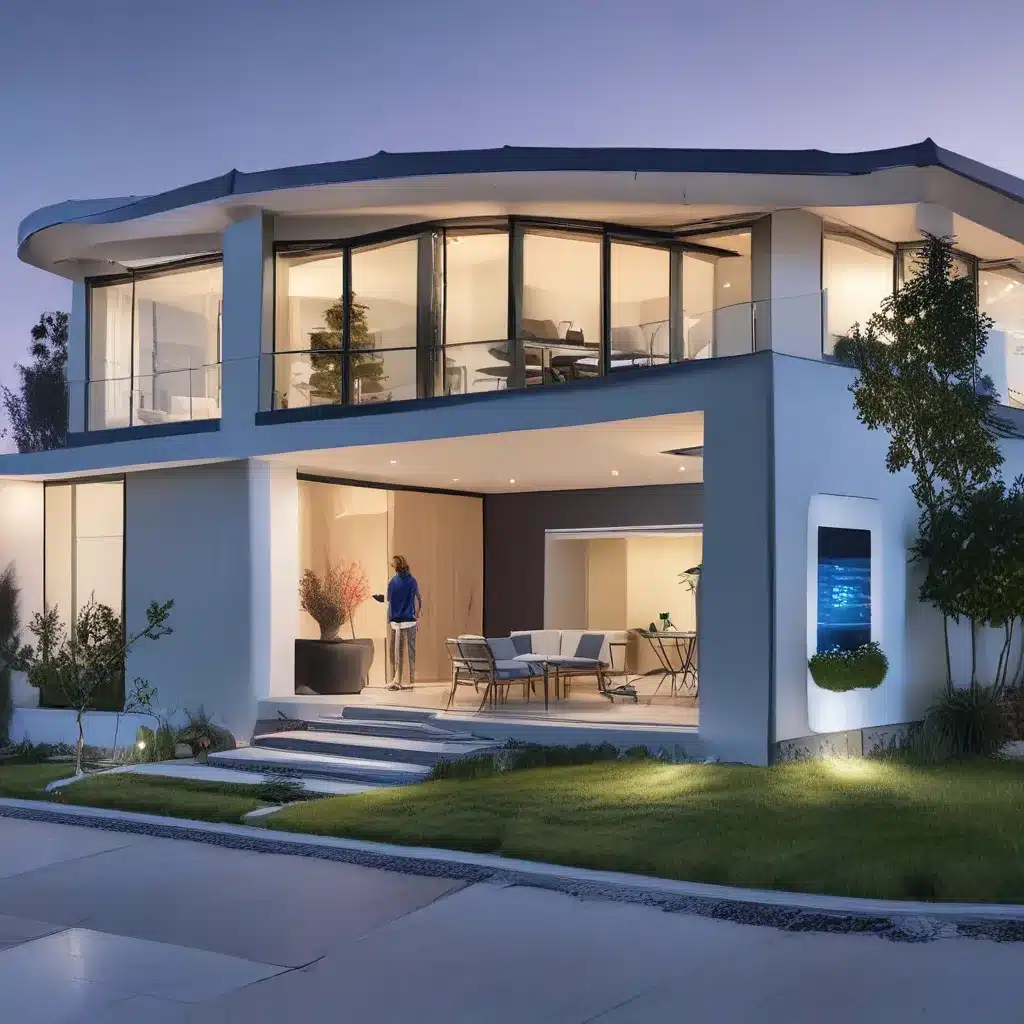
The Intelligent Home of The Future
The Dawn of a Smarter Tomorrow
It’s 6 AM, and my alarm clock is buzzing – but hold on, it’s not malfunctioning. Nope, this savvy little device has scanned my schedule and adjusted the wake-up time because I’ve got that big presentation first thing this morning. As I stumble to the bathroom, the shower automatically turns on and warms to my preferred toasty 103°F. While I’m getting ready, my electric car is charging up, powered by the solar panels and wind turbine on my roof.
By the time I hop in and head out, there’s an unexpected package waiting for me at home – delivered by drone, no less. I open it up to find cold medicine. Turns out the health sensors embedded in my bathroom have detected the early signs of an impending illness and placed an order automatically. Good thing I already nailed that presentation!
This may sound like a far-fetched futuristic fantasy, but according to the experts, it’s the not-so-distant reality of the smart home. Swedish research firm Berg Insight predicts that 63 million American homes will qualify as “smart” by 2022, with everything from internet-connected light bulbs to cameras that let us spy on our pets from the office. And that’s just the beginning.
The Brain Behind the Brawn
The true genius of the smart home of the future lies in its ability to learn and anticipate our needs. Thanks to advancements in artificial intelligence (AI), these intelligent abodes will be able to study our habits and preferences, dimming the lights, playing our favorite music, and even ordering supplies before we even realize we need them.
Crestron, an IoT company, is already working on software that tracks a person’s habits – like which music they want to hear in the morning or which lights they want on at bedtime. Once it gets the hang of your preferences, it automatically sets the perfect mood without you lifting a finger.
And the brains behind this operation won’t just be disembodied voices or screens – the smart home of the future will also incorporate physical robots to lend a helping hand. Robotic vacuum cleaners like the Roomba are already a common sight, but the future holds even more advanced companions. Robotic-furniture company Ori Living is working with IKEA on pieces that transform based on your needs – getting the bed out of the way when you need a desk, or hiding your closet when it’s dinnertime.
A Healthier, Happier Home
But the smart home revolution isn’t just about convenience and cool gadgets – it’s also about improving our health and well-being. Sensors embedded in our homes will be able to monitor everything from our water quality and air purity to the nutritional content of the food in our fridges. Cameras and sensors in the kitchen could even suggest healthier alternatives if we’re reaching for the sugary sodas a little too often.
And it doesn’t stop there – sensors in our bathrooms will be able to check for signs of health issues just by scanning our waste before it’s flushed. Bathroom-fixture company Toto has even experimented with urine-sampling toilets, while other companies are working on mirrors that can monitor our health just by analyzing our skin.
It’s a veritable treasure trove of data, all with the goal of keeping us happy, healthy, and thriving in our intelligent homes. And speaking of data, that’s where the true power – and potential pitfalls – of the smart home lie.
The Pros and Cons of a Connected Castle
All of this learning and scanning that the smart home of the future will be doing is undoubtedly impressive, but it also raises some serious privacy concerns. After all, every device connected to the internet is a potential target for hackers. A breach that turns off our homes could be catastrophic for the entire smart home industry, a “mass-extinction event for the Internet of Things,” as one expert puts it.
Governments are taking notice, with bills in the works to set minimum security requirements for smart devices used by federal agencies – requirements that could eventually become standard for the industry at large. And as for us consumers, we’ll need to be vigilant about keeping our homes and our data secure.
But the potential benefits of the smart home seem to outweigh the risks. Architect Michael Gardner of Luxus Design Build says homes are increasingly being built smart from the ground up – it’s no longer an afterthought, but an integral part of the home’s design.
The Future is Bright (and Energy-Efficient)
So, what does the future hold for the smart home? According to the experts, it’s a future where technology is as essential as electricity, refrigeration, or air-conditioning. The data collected by these intelligent abodes will be like plumbing – we’ll rely on it to keep our homes running smoothly, efficiently, and (hopefully) securely.
And as for the team at itFIX, we’re excited to be on the cutting edge of this smart home revolution. Whether it’s troubleshooting a temperamental thermostat or upgrading your home’s entire AI-powered ecosystem, we’re here to make sure your intelligent castle is running at peak performance. The future is bright, my friends, and it’s time to make your home work a little harder for you.












